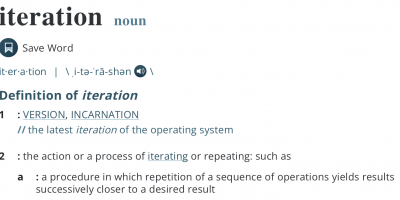Writing Is Iterative
After the Locking, instructs Vonnegut, comes winter.
Here in Minnesota, winter has—emphatically—returned. I marked the occasion with a frigid run, thinking about my slippery but well-worn route, the new-but-old year, and the old-but-new omicron variant.
As I ran, I listened to Slate’s Political Gabfest, in which David Plotz, Emily Bazelon, and John Dickerson discussed a provocative conundrum: When is it okay to critique a friend’s creative efforts?
The initial, unanimous response? Never!
But as they talked over variations on the theme, their answers started to shift:
Well, probably never…if you want to retain your relationship.
Perhaps sometimes…if they’re particularly successful or are particularly solicitous.
Probably yes…if you’re a partner responsible for heading off potential embarrassment.
Definitely yes…in fact, you’re obligated.
The move from “you can’t” to “you must” seems to depend on the creative effort and on the relationship between creator and critic: Ultimately, critique might be necessary when the effort is writing and the critic is an editor.
Writing, Plotz argued, requires a critical reader because writing is iterative.
Iteration describes repetition, making iterative a felicitous adjective when applied to writing. Writing requires repetition on both abstract and practical levels. When we write, we not only reproduce what we know; we also engage in mechanical reproduction—writing, reading, rewriting, rereading, asking others to read, rewriting, rereading, asking others to reread, then rewriting again.
It’s challenging, sometimes agonizing work, but modern iteration differs from rote repetition by its invocation of forward momentum. Iteration isn’t only repetition; it’s repetition toward refinement, toward a “desired result.”
Iteration is consequently an apt word for the work of writing. It’s also, possibly, an appropriate word for the work ahead.
In 2022, we face the same virus, the same intractable government and community responses, the same political rigidity, the same individual and collective challenges to childcare, school, and work, not to mention healthcare and other basic needs. The repetition itself feels like an inescapable, isolating trap.
The language of iteration might help us conceive of a way out.
The gentle onomatopoeia in iterative means the word requires repetition for its completion. Like winter, like running, like writing, iterative work is repetitious work. However—and also like winter, like running, like writing—the repetition can reach beyond equivalence. Though 2022 is already a repetitive year, it doesn’t have to be the same as what preceded it.

